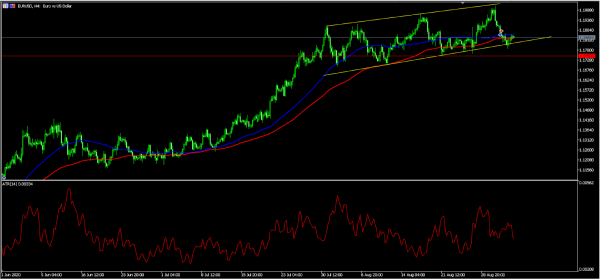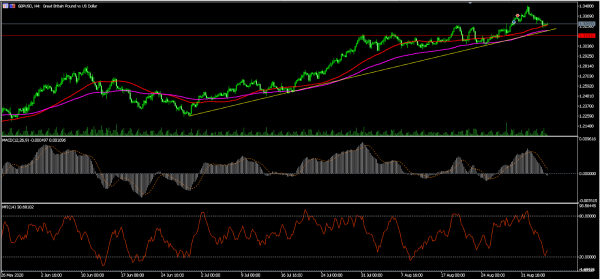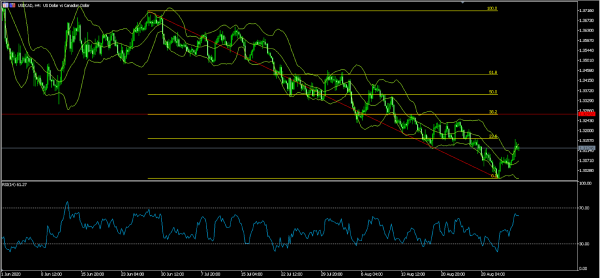US stocks declined sharply after weeks of an unstoppable bull run. The Dow Jones lost more than 2.8% of its value while the S&P 500 lost more than 3.5%. The harsh reversal was mostly because of technology companies like Apple, Amazon, and Facebook, that have helped to propel the rally. Some analysts believe that these companies have become extremely overvalued. For example, Apple is now valued at more than $2.1 trillion, making it bigger than all companies in the FTSE 100 and most economies. Other analysts believe that the correction was because of the rising political risks in the United States and the rising risks posed by the virus.
The US dollar rose against most currencies, extending a rally that started on Tuesday this week. The currency has rallied because of the strong economic data from the US. Yesterday, data showed that more than 881K people signed for jobless claims in the previous week. That was the lowest number recorded since March this year. Other data from Markit showed that the services PMI jumped from 50 in July to 55 in August. The non-manufacturing PMI rose to 56.9, which is a sign that the US is recovering. Later today, the currency will react to the official nonfarm payroll numbers. Analysts expect that the economy created more than 1.4 million jobs as the unemployment rate fell to 9.8%.
The Canadian dollar dropped against the US dollar partly because of the stronger dollar and lower crude oil prices. Yesterday, data from Canada showed that exports and imports expanded to $45.4 billion and $47.8 billion in July. These numbers were better than analysts were expecting by far. Later today, the currency will react to the country’s employment data. Analysts polled by Reuters expect the data to show that the economy created more than $275k jobs in August while the unemployment rate dropped slightly to 10.1%. We will also receive the Ivey PMI data from Canada.
EUR/USD
The EUR/USD pair is little changed during the Asian session. It is trading at 1.1845, which is higher than yesterday’s low of 1.1790. On the four-hour chart, the price is along the 50-day and 100-day moving averages. It is also slightly above the support line of the ascending channel that is shown in yellow while the Average True Range (ATR) has started to drop. Therefore, the pair is likely to continue to drop as traders aim for the next support level at 1.1750.
GBP/USD
The GBP/USD pair is trading at 1.3278, which is a few pips above yesterday’s low of 1.3241. On the four-hour chart, the price is along the 50-day EMA while the signal line of the MACD has started to drop. Also, the price is above the ascending trend line that is shown in yellow. The money flow index has dropped from the previous high of 85 to the current level of 35. Therefore, the pair is likely to continue falling as bears target the next support at 1.3150.
USD/CAD
The USD/CAD pair is trading at 1.3125, which is substantially higher than this week’s low of 1.3000. On the four-hour chart, the price is slightly below the 23.6% Fibonacci retracement level. It is also along the upper line of the Bollinger bands indicator. Also, the Relative Strength Index (RSI) has moved from the oversold level of 20 to the current level of 61. Therefore, the pair is likely to continue rising as bulls aim for the 38.2% Fibonacci retracement level at 1.3270.



